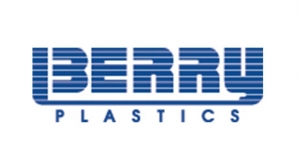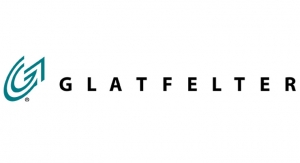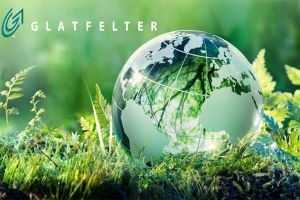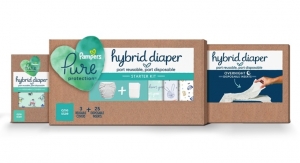09.10.12
Charlotte, NC
www.polymergroupinc.com
2012 Nonwovens Sales: $1.15 billion
Key Personnel: Joel J. Hackney, Jr, president and CEO; Dennis Norman, executive vice president and CFO; Mike Hale, senior vice president and advisor to the CEO; Michael Modak, senior vice president, global growth and innovation offi cer; Daniel Guerrero, senior vice president, global supply chain lead; Scott Tracey, senior vice president, general manager, Americas; Jean-Marc Galvez, senior vice president, general manager, Europe; Robert Dale, senior vice president, general manager, Asia; Mary Tomasello, senior vice president, global human resources and employee communications;; Daniel Rikard, senior vice president, general counsel, secretary and ethics compliance officer
Plants: Benson, NC; Mooresville, NC; Waynesboro, VA;; North Bay, Ontario, Canada; Cujik, The Netherlands; Tarragona, Spain; San Luis Potosi, Mexico; Buenos Aires, Argentina; Bailleul, France; Nanhai, China; Suzhou, China; Cali, Colombia
Processes: Spunbond, meltblown, SMS, composites, through air bonded, adhesive bonded, resin bonded, thermal bonded, spunlace, airlaid, apertured film, film laminates, sonic laminated, extruded polyolefins, thermal laminated, Apex, Spinlace and other proprietary fabric forming, surfacing and binding systems
Brands: Agribon, Air-Gard, Chicopee, Chicopee Cares, Chix, Chux, , Comfortsilk, Geca-Tapes, Durapex, Dura-Tex, Durawipe, Medisoft, Medisoft Ultra, Pentamax, Poly-Breathe, Poly-Safe, Reticulon, Soft-Touch, Spinlace, TopSwell. Trademarked Technologies: Apex, Amira and Arium
A new CEO and a Chinese investment are among the recent headlines from Polymer Group Inc., Charlotte, NC. The company is the world’s largest manufacturer of spunmelt nonwovens with plants around the world and is also a producer of a range of nonwovens technologies.
In 2012, the company reported sales volumes increased 6.1% but sales decreased slightly to $1.15 billion due to lower raw material pricing. According to executives, highlights of the year included increased volumes in the Americas thanks to stronger sales in hygiene and wipes markets as well as strong sales in the Asian healthcare and hygiene market, thanks in part to the startup of a new spunmelt line in China in 2011.
In June 2013, PGI announced that CEO Veronica Hagen was retiring from her post after six years. She will be replaced by Joel Hackney, who has held varied global executive roles with General Electric, Nortel and Avaya.
“I am pleased to join PGI and energized by the prospects that lie ahead for the company,” Hackney says. “I will be focused on building on the previous momentum and strong foundation. Specifically, I am committed to achieving economic leadership and accelerating many of the growth initiatives that have been identified in our focus markets and increasing our strategic position with key customers”
Before her retirement, Hagen oversaw the organizational redesign at PGI that realigned and repositioned the company to leverage the benefi ts of its global footprint, aligning resources and capabilities with future growth opportunities. Among the major components of the redesign is the creation of a Global Growth and Innovation (GGI) unit, which will be the growth engine of PGI.
Another component of this redesign was the consolidation of its U.S. and Latin America regions into a combined Americas region. Included in this division are PGI sites in Cali, Colombia; Buenos Aires, Argentina; San Luis Potosi, Mexico; Waynesboro, VA; Mooresville, NC; and Benson, NC.
This region continues to grow in importance to PGI despite the fact that the rapid rate of investment seen in the last decade has slowed in recent years. PGI’s most recent efforts in the region are a proprietary, custom-designed spunmelt line in Waynesboro, VA, which became operational in 2011 and a seventh line in San Luis Potosi, Mexico, which came onstream in 2010.
Meanwhile, across the globe investment continues in China, where PGI operates sites in Suzhou, China, where a state-of-the art spunmelt line came onstream in 2013, and Nanhai, where construction on a new site is currently underway.
The new plant in Nanhai, which replaces an existing site built in 1996, will allow the company to expand its manufacturing capacity for high quality nonwoven products for the global hygiene and healthcare markets. The investment will allow PGI to expand production of chemical bonded products for hygiene applications and better meet the needs of customers in the region.
PGI has operated in Nanhai for more than 15 years and the company will continue to expand the manufacturing footprint of the new site in sync with the needs of customers not only in China but throughout Asia.
“We see Nanhai’s location as a great spot to target growth in China as well as throughout Southeast Asia,” GGI Officer, Mike Modak says. “Adding a new plant will really give us the footprint to capitalize on this growth.”
The new Nanhai facility will combine the benefits of PGI’s current and new manufacturing technologies and is expected to be complete by the first half of 2016, with no disruptions to customers.
Elsewhere in China, PGI completed construction on a spunmelt line in Suzhou, China in mid 2013. The largest manufacturer of spunmelt nonwovens in the world, PGI also operates significant sites in Virginia, North Carolina, Spain, Argentina, Mexico and Colombia.
Modak says the company is constantly looking at new areas for growth, despite an excess of capacity in many parts of the globe. “Everywhere is on our radar screen,” he says. “We have a strategy that is global but also supporting our customers as they grow globally. We have the luxury of looking at the market from a broad base. Hygiene is strong but we also are seeing great things coming out of our industrial businesses and we like what we are seeing in healthcare. Even wipes continues to grow.”
Last year, PGI unveiled a new platform technology to help broaden its participation across several non-hygiene markets. Arium uses submicron fibers to produce a matrix of fibers to deliver improved performance properties in a variety of applications in healthcare, industrial, filtration and other segments.
“Arium is a completely new technology platform for the industry that will enable us to meet the market need for increasingly cost-effective fabrics with improved performance at a value proposition unmatched by any other submicron fiber technology,” said Hagen at the time of the launch. “Just as we did with our Apex and Spinlace technologies, PGI is leading the industry and investing in game-changing platforms.”
Currently produced, Arium technology has been generating significant interest across a number of product categories, Modak reports. The submicron fibers contained in materials produced with the Arium technology can provide higher surface area, biosafety and tunable porosity that enhance performance benefits such as absorbency, adsorption, opacity, softness, barrier protection, acoustic performance and high-efficiency filtration. The technology can be used alone or along with another technology.
“We are always looking at new technologies and the possibility of adding to our portfolio,” Modak says. “We see a lot of trends in the marketplace and we try as hard as we can to make sure our product offerings stand up to those trends.”
While Modak could not comment specifically on what is in the pipeline, he did cite improved softness in newer generation spunmelt products targeting the diaper market as one example of how PGI is constantly seeking ways to build out its portfolio.
“We have the luxury of looking at the market from a broad base,” he says. “Part of the challenge is getting the right sequence right, chasing the right markets and the right geographies.”
www.polymergroupinc.com
2012 Nonwovens Sales: $1.15 billion
Key Personnel: Joel J. Hackney, Jr, president and CEO; Dennis Norman, executive vice president and CFO; Mike Hale, senior vice president and advisor to the CEO; Michael Modak, senior vice president, global growth and innovation offi cer; Daniel Guerrero, senior vice president, global supply chain lead; Scott Tracey, senior vice president, general manager, Americas; Jean-Marc Galvez, senior vice president, general manager, Europe; Robert Dale, senior vice president, general manager, Asia; Mary Tomasello, senior vice president, global human resources and employee communications;; Daniel Rikard, senior vice president, general counsel, secretary and ethics compliance officer
Plants: Benson, NC; Mooresville, NC; Waynesboro, VA;; North Bay, Ontario, Canada; Cujik, The Netherlands; Tarragona, Spain; San Luis Potosi, Mexico; Buenos Aires, Argentina; Bailleul, France; Nanhai, China; Suzhou, China; Cali, Colombia
Processes: Spunbond, meltblown, SMS, composites, through air bonded, adhesive bonded, resin bonded, thermal bonded, spunlace, airlaid, apertured film, film laminates, sonic laminated, extruded polyolefins, thermal laminated, Apex, Spinlace and other proprietary fabric forming, surfacing and binding systems
Brands: Agribon, Air-Gard, Chicopee, Chicopee Cares, Chix, Chux, , Comfortsilk, Geca-Tapes, Durapex, Dura-Tex, Durawipe, Medisoft, Medisoft Ultra, Pentamax, Poly-Breathe, Poly-Safe, Reticulon, Soft-Touch, Spinlace, TopSwell. Trademarked Technologies: Apex, Amira and Arium
A new CEO and a Chinese investment are among the recent headlines from Polymer Group Inc., Charlotte, NC. The company is the world’s largest manufacturer of spunmelt nonwovens with plants around the world and is also a producer of a range of nonwovens technologies.
In 2012, the company reported sales volumes increased 6.1% but sales decreased slightly to $1.15 billion due to lower raw material pricing. According to executives, highlights of the year included increased volumes in the Americas thanks to stronger sales in hygiene and wipes markets as well as strong sales in the Asian healthcare and hygiene market, thanks in part to the startup of a new spunmelt line in China in 2011.
In June 2013, PGI announced that CEO Veronica Hagen was retiring from her post after six years. She will be replaced by Joel Hackney, who has held varied global executive roles with General Electric, Nortel and Avaya.
“I am pleased to join PGI and energized by the prospects that lie ahead for the company,” Hackney says. “I will be focused on building on the previous momentum and strong foundation. Specifically, I am committed to achieving economic leadership and accelerating many of the growth initiatives that have been identified in our focus markets and increasing our strategic position with key customers”
Before her retirement, Hagen oversaw the organizational redesign at PGI that realigned and repositioned the company to leverage the benefi ts of its global footprint, aligning resources and capabilities with future growth opportunities. Among the major components of the redesign is the creation of a Global Growth and Innovation (GGI) unit, which will be the growth engine of PGI.
Another component of this redesign was the consolidation of its U.S. and Latin America regions into a combined Americas region. Included in this division are PGI sites in Cali, Colombia; Buenos Aires, Argentina; San Luis Potosi, Mexico; Waynesboro, VA; Mooresville, NC; and Benson, NC.
This region continues to grow in importance to PGI despite the fact that the rapid rate of investment seen in the last decade has slowed in recent years. PGI’s most recent efforts in the region are a proprietary, custom-designed spunmelt line in Waynesboro, VA, which became operational in 2011 and a seventh line in San Luis Potosi, Mexico, which came onstream in 2010.
Meanwhile, across the globe investment continues in China, where PGI operates sites in Suzhou, China, where a state-of-the art spunmelt line came onstream in 2013, and Nanhai, where construction on a new site is currently underway.
The new plant in Nanhai, which replaces an existing site built in 1996, will allow the company to expand its manufacturing capacity for high quality nonwoven products for the global hygiene and healthcare markets. The investment will allow PGI to expand production of chemical bonded products for hygiene applications and better meet the needs of customers in the region.
PGI has operated in Nanhai for more than 15 years and the company will continue to expand the manufacturing footprint of the new site in sync with the needs of customers not only in China but throughout Asia.
“We see Nanhai’s location as a great spot to target growth in China as well as throughout Southeast Asia,” GGI Officer, Mike Modak says. “Adding a new plant will really give us the footprint to capitalize on this growth.”
The new Nanhai facility will combine the benefits of PGI’s current and new manufacturing technologies and is expected to be complete by the first half of 2016, with no disruptions to customers.
Elsewhere in China, PGI completed construction on a spunmelt line in Suzhou, China in mid 2013. The largest manufacturer of spunmelt nonwovens in the world, PGI also operates significant sites in Virginia, North Carolina, Spain, Argentina, Mexico and Colombia.
Modak says the company is constantly looking at new areas for growth, despite an excess of capacity in many parts of the globe. “Everywhere is on our radar screen,” he says. “We have a strategy that is global but also supporting our customers as they grow globally. We have the luxury of looking at the market from a broad base. Hygiene is strong but we also are seeing great things coming out of our industrial businesses and we like what we are seeing in healthcare. Even wipes continues to grow.”
Last year, PGI unveiled a new platform technology to help broaden its participation across several non-hygiene markets. Arium uses submicron fibers to produce a matrix of fibers to deliver improved performance properties in a variety of applications in healthcare, industrial, filtration and other segments.
“Arium is a completely new technology platform for the industry that will enable us to meet the market need for increasingly cost-effective fabrics with improved performance at a value proposition unmatched by any other submicron fiber technology,” said Hagen at the time of the launch. “Just as we did with our Apex and Spinlace technologies, PGI is leading the industry and investing in game-changing platforms.”
Currently produced, Arium technology has been generating significant interest across a number of product categories, Modak reports. The submicron fibers contained in materials produced with the Arium technology can provide higher surface area, biosafety and tunable porosity that enhance performance benefits such as absorbency, adsorption, opacity, softness, barrier protection, acoustic performance and high-efficiency filtration. The technology can be used alone or along with another technology.
“We are always looking at new technologies and the possibility of adding to our portfolio,” Modak says. “We see a lot of trends in the marketplace and we try as hard as we can to make sure our product offerings stand up to those trends.”
While Modak could not comment specifically on what is in the pipeline, he did cite improved softness in newer generation spunmelt products targeting the diaper market as one example of how PGI is constantly seeking ways to build out its portfolio.
“We have the luxury of looking at the market from a broad base,” he says. “Part of the challenge is getting the right sequence right, chasing the right markets and the right geographies.”



















